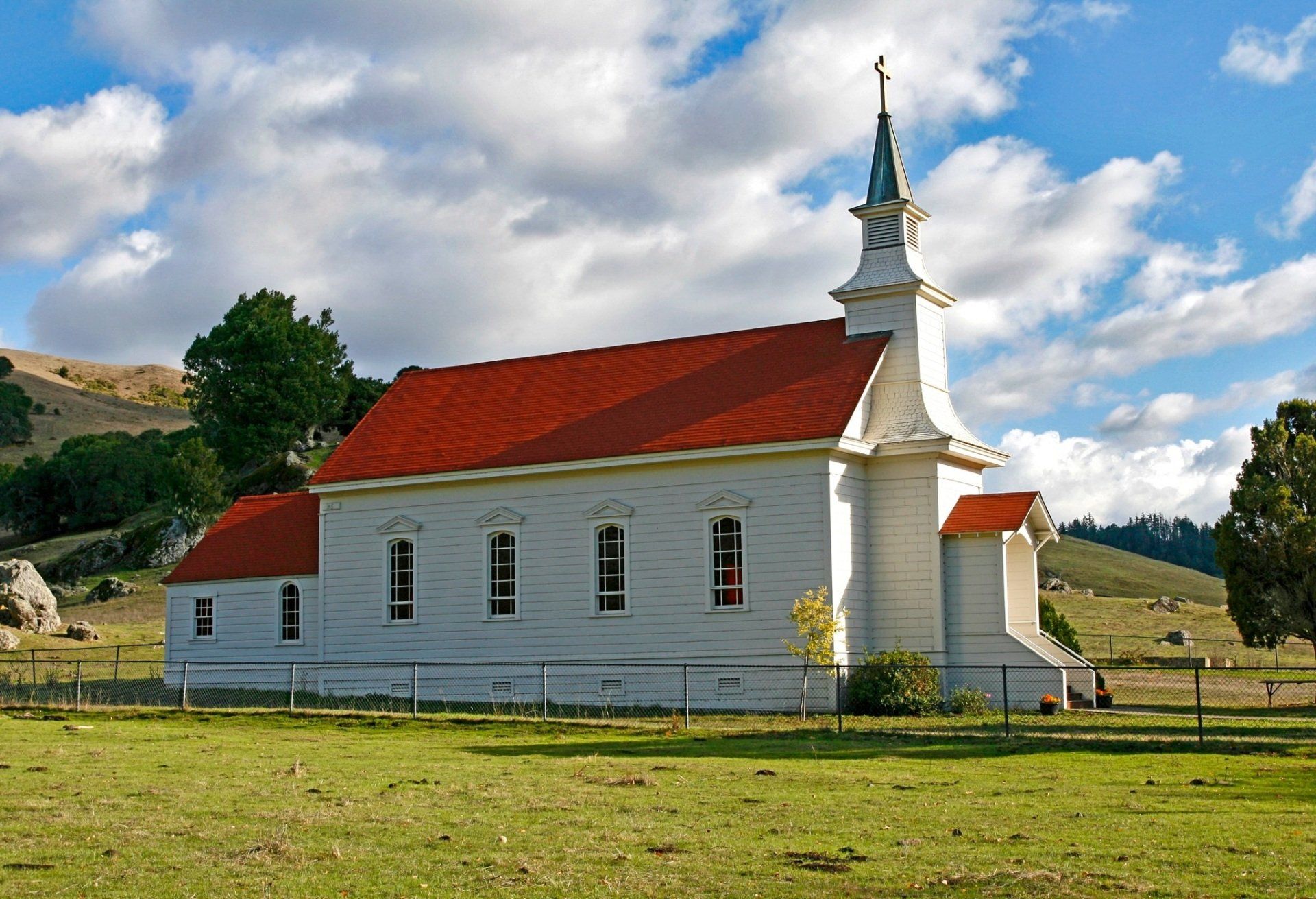Are We Saved by Faith Alone?
Bishop Robert Barron says faith is not enough
Is the Christian saved by faith alone? Bishop Robert Barron says salvation requires more than faith.
I recently read an article in Fox News that said Bishop Robert Barron is the best-known Catholic in the world after the Pope. His YouTube channel has over a million subscribers. And his Word on Fire ministry reaches a gigantic audience. I went to his website and noticed a number of interesting videos, including one that asks, “Are we saved by faith alone?” His bottom-line answer? No we are not. I think he is mistaken and in this video I want to tell why.
So What Does Bishop Barron say?
He admits that he is taking on a fractious issue, “going where angels fear to tread.” The question has been debated for 500 years and he is under no illusion that he is going to solve the problem in 12 minutes.
He builds his case around Romans 13:8: Owe no one anything, except to love each other, for the one who loves another has fulfilled the law.
According to the Bishop Paul is arguing we are not saved by keeping the ceremonial law—performing sacrifices in the temple, observing special days, etc. Barron says this is all fulfilled in Christ. So no, we do not save ourselves by annually sacrificing a lamb. However, we are still obligated to obey the moral law. For example, the Ten Commandments. The bishop is saying faith is not enough; salvation requires us to obey the moral law.
We are saved by faith in Christ plus obeying the moral law, especially the law of love. His exact words: “Keeping the moral law is relevant to our salvation.”
He cites Matthew 25 where the sheep and goats are separated, not on the basis of faith, but on the basis of love.
He says that when Protestants argue that they have been made righteous forensically, or legally, they are talking about something that is not really in us. It is external to us.
He concludes by saying the best summary of Paul’s position is that we are saved by faith expressing itself in love.
I think the bishop is mistaken—here’s why:
Bishop Barron argues that when Paul in Romans says we are not saved by keeping the law, Paul means the ceremonial law like temple sacrifices, east days, etc. No, Paul does not mean this. Paul uses the word “law” 53 times in Romans and almost every time he is referring to the moral law—things like keeping the ten commandments. And he says we cannot save ourselves by trying to keep it.
The Bishop says that it is vitally important to allow the love of God to flow out of our lives. Of course it is. No protestant argues against this; this isn’t even the question; here’s the question—is it necessary to keep the moral law to be saved? Or does obedience to it contribute to or merit our salvation?
Bishop Barron asserts that Paul never says we are justified by faith alone. Just because Paul does not use the exact phrase does not mean he doesn’t teach it. Paul never uses the word trinity but there is no doubt that he teaches it.
Romans 4:5: And to the one who does not work but believes in him who justifies the ungodly, his faith is counted as righteousness,
Ephesians 2:8,9; For by grace you have been saved through faith. And this is not of yourself; it is the gift of God, 9 not of works, so that no one can boast.
I think Paul is saying we are justified by faith alone.
The bishop argues keeping the moral law is “relevant to our salvation.” Relevant, yes. Obedience results from our salvation. But it does not contribute to it. I wish he had defined more clearly what he means by relevant. But I think he is saying that keeping the moral law is necessary for salvation.
Then he argues that the Protestant belief in our legal righteousness is external to us; not really in us. This is a misrepresentation of our position; our legal standing before God is forensic(legal) all right but it is applied to us because we have been supernaturally born again and it has transformed our life. It is as intrinsic as anything has ever been. Millions of protestants who believe they are saved by faith alone live out this life of love that Bishop Barron is calling for. He knows this. He would agree with this statement. The Roman Catholic position of faith plus works does not produce people who are any more godly than the millions of non-Catholics who love and serve Jesus Christ. Yes, there are millions of Catholics who love and serve our Lord but their doctrine does not seem to produce more and better Christians.
Let me make a few more observations on this doctrinal controversy:
The Bishop doesn’t deal with the hardest verses; He references Luther who said that by reading Paul he learned that we are saved by faith alone and the bishop says that in reading Romans we encounter these texts—but he never cites them; he doesn’t even really interact with them; he skips them. I know you can’t deal with everything in one video but these seems like a significant oversight.
The bishop does not seem to be representing what Roman Catholicism actually does. When I talk to Catholics they never tell me that my great need is to add love to faith. They tell me I need to add church ritual to faith; baptism, participation in the sacraments, penance, indulgences, and keeping the commandments. The Catholics I read and know tell that those are the great need of my life—not love.
There are dozens of passages that teach salvation by faith alone but let me add these three to your list. There are the three great parables in Luke that can only be explained by the doctrine of salvation by faith alone: The Prodigal Son in Luke 15, the Publican and the Pharisee in Luke 18, and the Thief on the Cross in Luke 23. Read those again and see if they do not teach beyond a shadow of a doubt that a man is saved by faith plus nothing.
The doctrine of salvation by faith and works violates one of the fundamental analogies in Scripture. When a person becomes a Christian what word does God choose to describe His relationship with us? Father. He becomes our father. Now every human being knows we don’t earn our status as a son by works, nor is it maintained by works. Even loving works. We are sons of our Father unconditionally and nothing can change that fact. But the doctrine of faith plus works is foreign to that kind of relationship. I have told people who are trying to save themselves through their good works that God is not their father; he’s their boss. He’s a nice boss, but when you mess up even a good boss is obligated to fire you. And if you are going to maintain a good status with your boss you have got to perform. Not so with a father. His love is unconditional. You do not perform good works to maintain your status as a son. That status is your permanent possession.
Much of this video is irrelevant to the question. Of course living a life of love is what the Christian should be doing. Of course real Christians live this life of love. But the question is this: Does this contribute to our salvation, or is it a result of our salvation? Are our works, our religious efforts, necessary to save us? He never really answers this question. He answers a different question: What should the Christian life look like? How should a Christian live? He does not answer the question, How is one saved? Or how does one enter the Christian life?
Most people who come call themselves Christians believe they are saved by both faith and works. But the one question not a single one of them can ever answer is, “How many works do I have to perform in order to be saved? What’s the minimum grade for getting to heaven. They can never know this and thus they can never have true assurance of salvation—a certainty that they are going to be with the Father for eternity.
Why is this question so important? It seems to me like millions are laboring to save themselves. When I talk to missionaries to Catholic countries they are uniform in their contempt of Catholicism as a religion of works and even superstition. It seems like most Catholics are trying to find some combination of rituals that will get them into heaven.
Please do not misunderstand me. I believe that Robert Barron is an outstanding Christian, a brother in Christ, and an ally in the battle against the nihilism, cultic Progressivism, and paganism of our age. I think he is simply mistaken on this issue and the mistake is important.
Thank you for listening. May the Lord bless you richly.
More: My Mixed Feelings on the Catholic Church: https://www.youtube.com/watch?v=x9QHx4zr9io
Robert Barron says faith is not enough: https://www.youtube.com/watch?v=BHGGYqXrLT8
A very positive Fox News piece on Bishop Barron: https://www.foxnews.com/faith-values/bishop-barron-most-popular-catholic-vatican










